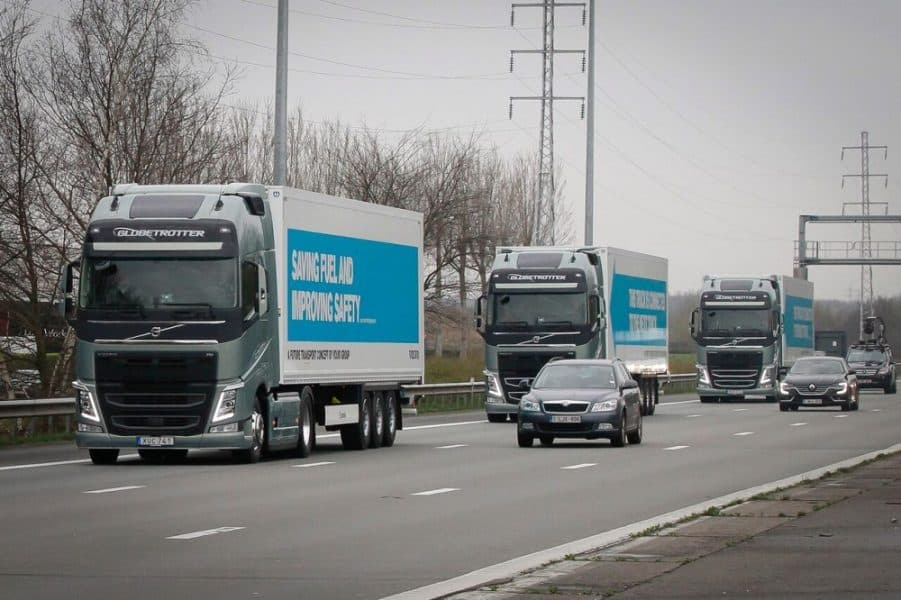
The European Truck Platooning Challenge held in Rotterdam on 6 April was judged a big success by truck manufacturers and politicians alike.
The event, organised by the Dutch government as part of its six-month European Union presidency, attracted convoys of semi-autonomous, electronically-linked trucks from all six commercial vehicle members of Association des Constructeurs Européens d’Automobiles (ACEA). Platoons were sent to the port of Rotterdam from various European cities by DAF Trucks, Daimler, Iveco, MAN Truck & Bus, Scania and Volvo Group.
Speaking in Rotterdam on behalf of the ACEA Commercial Vehicle Board, DAF Trucks President Harrie Schippers pointed out the challenge had demonstrated how the only barriers now standing in the way of widespread adoption of platooning and its fuel-efficiency and safety benefits were not technical but all to do with disparities in legislation between EU member states.
“Harmonisation is needed if we want a wide-scale introduction of platooning,” he said. More and more national governments in the EU, including the UK are preparing to allow on-road tests of platoons of semi-autonomous trucks, and this is expected to help public understanding and acceptance. But pan-European adoption of platoons is needed to deliver substantial benefits, not least in reductions in carbon dioxide emissions.
“It is for this reason that we believe the European Truck Platooning Challenge has been a huge success,” said Schippers. “It has fostered much-needed co-operation between all relevant stakeholders across the EU, facilitating cross-border driving and encouraging compatibility on legal and technical issues. We look forward to harvesting the lessons from this initiative so that together we can make truck platoons a common sight on Europe’s roads in the future.”
Melanie Schulz, the Dutch Minister for Infrastructure and the Environment who was instrumental in organising the platooning challenge, a world-first in international road transport, is now keen to take the initiative further. “The results of this first major try-out in Europe are promising,” she said. “The hands-on experience gained here will be very useful. It will certainly help my colleagues and I discuss the adjustments needed to make self-driving transport a reality.”





